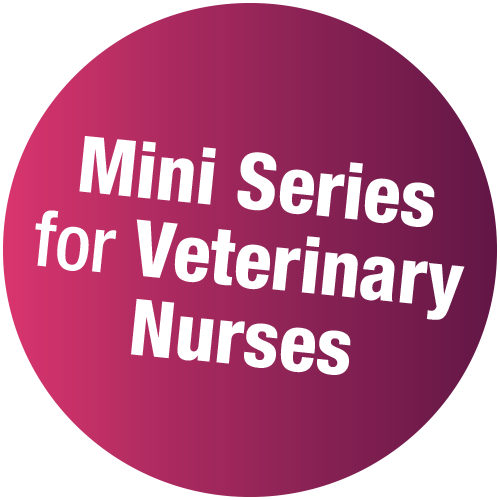MS089 – Essential Practice Lab Tips, Tricks and Techniques – Nurses
£297.00 (+VAT)
12 months access to recordings and course materials is included. Please note that these are webinar recordings and not live events. Full details on how to access the Mini Series will be emailed to you.
Blood and urine sampling are essential for diagnosing many different diseases. Microscopic understanding and analysis are also at the hub of your practice’s diagnostic capability. Nurses with a good understanding of these areas are key to the smooth running of the practice, playing a vital role in handling and analysing diagnostic samples. This Mini Series will provide you with the principles and confidence to handle a multitude of diagnostic samples productively, optimising the information obtained from every sample.
- Join Roger Powell MA VetMB DipRCPath DiplomateACVP FRCPath MRCVS for three 2-hour sessions.
- Essential practical tips from our expert tutor
- Comprehensive notes to download
- Self-assessment quizzes to ‘release’ your 8 hours CPD certification (don’t worry, you can take them more than once if you don’t quite hit the mark first time)
- 12 Months access to recorded sessions
- Superb value for money – learn without traffic jams or rota hassles
- Watch the recordings on your iPad
Programme
Blood Sampling and Analysis: How to Get the Best from a Drop of Blood
Without the correct and appropriate sample, animals will be misdiagnosed with a disease and diseases can be missed. In this session we’ll highlight some of the common pitfalls with sampling, illustrating these with case examples and then identifying how to avoid them. We’ll look at how your analyser works and show you how or why it gets it wrong and what you can do about it. The cases and material throughout will use numerous images to graphically illustrate the points and ideas with take home points and an introduction to blood smears and cell identification.
What you’ll learn:
- How to take the right sample to diagnose a disease
- How to confirm an animal is anaemic before investigating the cause
- How to identify if the anaemia is regenerative or not
- Leukogram numbers and white cell morphology
- How to make a good blood smear – an absolute must have
- How to identify physiological leukocytosis versus inflammation and infection
Urine Analysis: Not Just Any Old Jam Jar!
Urine samples are very easy to overlook but are essential to diagnose or exclude many diseases and are often dramatically affected by man made error or artifact and changes, including drugs. In this session we’ll start with sampling and then move on talk through a complete urine analysis to ensure the information obtained is correct. We’ll also focus on sediment analysis, the case material illustrated with numerous colour images throughout.
What you’ll learn:
- When to take a voided sample or via cystocentesis
- What you can reliably do with the sample in house
- How to identify common sediment material
- How to avoid common pitfalls and sample artifact
- When and how to use dipsticks properly
Microscopy: Does it Always Have to be Blurred?
“I’ve never seen it look so clear”. This is a common quote from nurses when using a microscope which is properply used and set up. In this session we’ll show you how to set up a scope and slide properly so everything is clear and you don’t struggle to see things. We’ll show wet prep scraped material and introduce smear examination from skin material, including inflammation and common skin masses. Unstained and stained material cases will be used throughout, with numerous images to highlight points and identifiable features.
What you’ll learn:
- How to set up a microscope
- How to take a skin scrape
- How to take and smear material from a skin lesion
- How to identify bacterial infection
- How to identify some common skin masses
Course Feedback:
“I feel more confident to try microscopy”
“The sessions will help us to make more use of practice lab equipment, getting more accurate results and interpreting them better”
“It was good to be able to touch up on my lab skills considering the new practice i work at has an internal lab and require there nurses to do more in house analysis. This will help me be able to read blood smears and microscopy better”
The price includes all 3 sessions, notes and quiz – 8 hours of CPD
*No traffic jams, accommodation hassles, pet or childcare, rota clashes, locum fees ……….. just great CPD and a valuable ongoing resource.



